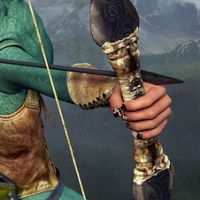- About Us
- Columns
- Letters
- Cartoons
- The Udder Limits
- Archives
- Ezy Reading Archive
- 2024 Cud Archives
- 2023 Cud Archives
- 2022 Cud Archives
- 2021 Cud Archives
- 2020 Cud Archives
- 2015-2019
- 2010-2014
- 2004-2009
 |
Cud Flashes In The Pan |
This month’s theme:
Corridor & Cereals Part 4 - Fantastic Yarns
Regular readers know that I occasionally do a column with stories that share titles with the songs of various recording artists. Here’s the fourth part of this seven-part installment, the theme honoring one of my favorite musical duos: Hall & Oates. As of this writing, Daryl Hall and John Oates have recorded 18 studio albums, but they have 28 compilation “best of” albums. It’s nice when labels shamelessly try to make as much money as they can, no matter how silly it looks.
The word “fantasy” had a very broad definition. My favorite example of how it differs from science fiction comes from Rod Serling, introducing “The Fugitive” on The Twilight Zone: “It's been said that science fiction and fantasy are two different things: science fiction, the improbable made possible; fantasy, the impossible made probable.” His point with that intro was merging the two genres. We’ll stick with fantasy here… for the most part.
“Some Things Are Better Left Unsaid”
Sword & Sorcery
By David M. Fitzpatrick
The two wizards were barely on their feet. The landscape for a mile around them was absolutely destroyed. The forest had been flattened, the ground scorched, and the sky turned gray. In the distance, through the haze, was a city, just outside the reach of their magical combat.
“So we’ve fought a spellcasting battle to a stalemate,” Malkior said. “Your magical power channels are drained—but so are mine. We’ll meet another day, and do this again. Eventually, my old nemesis, you’ll fail—and I will rule this world.”
“I need only say one word to destroy you!” cried Benikar, and he held up the amulet before him. It glowed a fierce, otherworldly blue, and for a moment Malkior’s grew frightened in the face of such awesome power. But he quickly regained control, sneering at his adversary.
“But you never will!” he said, and he laughed maniacally. “Go ahead, Benikar—do it! Say the command word! Utter that mystical word of power inscribed on the Amulet of Destruction. You’ll destroy me, but while the amulet will protect you, you’ll destroy THEM as well!”
He pointed, arm outstretched, across the barren wasteland. Miles in the distance, the city stood, harmless and helpless.
“Yes, millions of people would be destroyed in the blast,” Malkior cackled. “Mountains will crumble twenty miles away. This city, and others like it, and a hundred villages and towns, will be wiped off the face of the world. Small price to pay to kill me and save the world, wouldn’t you say?”
Benikar wavered where he stood. His hand shook as he held the amulet up. The word was right in front of him. All he had to do was say it.
“Some things are better left unsaid, wizard,” Malikor spat at him. “But it’s your only option. You have no spells left. You have no defenses left. Nor have I the same. The only thing you can do is speak that word and end this now. But you won’t!”
“No,” Benikar said. “I won’t. I’ll wait until I’ve rejuvenated my magic, and until you’ve rejuvenated yours. I’ll be back, and more powerful than before.”
Malikor waved a hand in dismissal. “The good guys lose because they’re never willing to do the bad deeds that need doing, Benikar. When you learn to sacrifice millions to save billions, or to shoot the bad guy in the back, then maybe you’ll win.”
He turned to walk away.
Benikar sighed and reached behind him. He pulled his short bow out, nocked an arrow, and fired. The defenseless Malikor, who never saw such a primitive, non-magical attack coming, yelped in pain as the arrow pierced his torso. He went down in a heap, clutching at his back.
Benikar stood over the evil wizard as he died.
“I’ll never sacrifice innocents,” he said. “But I’m not above shooting the bad guy in the back. Any last words?”
Malikor gurgled. Blood poured from his mouth.
“I guess some things really are better left unsaid,” Benikar said.
He nocked another arrow and fired it through the wizard’s skull.
“Did It in a Minute”
Tech fantasy
By David M. Fitzpatrick
“Singularity ready, sir.”
“Excellent. Move it into the prepared pocket dimension.”
“Done, sir. Singularity in place. Pocket dimension effectively infinite and ready.”
“All right, team, this is it. We’ve planned for this for months, just as we have before. I don’t want to see anything go wrong with this one. I enjoy my perfect record.”
“Yes, sir!”
“Then let’s do it. Inject spacetime into the singularity and initiate quantum fluctuation.”
“Proceeding, sir. Time to explosion: about one minute.”
“Injecting dimensions…”
“Space injected.”
“Injecting time…”
“Time injected.”
“Spacetime confirmed within the singularity. Ready to initiate quantum fluctuation, sir.”
“Go ahead.”
“Initiating quantum fluctuation…”
“Expansion beginning, sir!”
“Inflation increasing, sir!”
“We have metric expansion, sir!”
“Baryogenesis beginning, sir, as anticipated!”
“Excellent job, everyone. Just fantastic. Just in case you didn’t know, this occasion marks my one hundredth universe created. I’ve rarely worked with a crew as good as this one, and I look forward to beginning my Number 101, and I hope many of you will be on my team again.”
“You can count on us, sir!”
“Excellent. So without wasting any time, let’s begin construction of a new pocket dimension, and begin generation of a new singularity. And notify the Existence Bureau of our success, so that they can send teams out along this new universe’s timeline and begin ascertaining how its development goes over its lifetime.”
“Notifying, sir!”
“It’s always interesting to see where life evolves and how cultures develop with various laws of physics and an infinite capacity for different worlds. This one will be no different.”
“The Emptyness”
Time travel
By David M. Fitzpatrick
Stars. Galaxies. Superclusters. Black holes and nebulae and all the wonders that are there.
I will myself out of the known universe—just outside, so that all I can see is a bright point of light. From out here, outside of all time and space, the universe looks like the singularity that became the Big Bang. From out here, the universe is always a singularity. It just takes adding some time to see the Big Bang continue.
I extend my consciousness in an infinitely thin line, reaching out to the singularity. As soon as I touch it, I’m part of its spacetime, and I behold it as its expansion continues. I accelerate time from my perspective, and the singularity that is the known universe expands toward me. I brace myself.
Spacetime passes through me, washes over my entire being, and it’s the most incredible feeling ever. I’ve done it countless times. I never bore of it.
Around me, the universe expands ever faster. Galaxies fly past. Black holes blast through me. I bask in it all—the gravity, the electromagnetism, the nuclear forces, the quantum foam. It’s all so amazing.
Then I will myself out of the known universe again—just outside, as before. I bask in the emptiness of nothingness and regard the bright, glowing pinpoint of the singularity. Then I extend my consciousness in another filament and join its spacetime, and the process repeats. It never gets old, feeling reality wave through me.
It’s the same feeling as it always is, and it’s never old, but I also love the unique experiences that I can find throughout spacetime. I’m in the mood for that, so I will myself to a random part of the universe, to a random galaxy, to a random planet, to a random spot on that world. I like to do this. I don’t have a particular place in mind; I just will myself to some random point in spacetime, and there I am.
As is typical, my arrival point is utterly alien. I have no frame of reference to tell me what is happening around me, so I extend my consciousness around this world and soak up its history, its culture, its people. It takes a few moments, but finally I have absorbed all that I need to know about this world. I retract my consciousness and behold what is before me.
I’m in the attic of a house. There are big windows at either end, framed by the sloping roof on either side. A woman is sitting on the floor, on a blanket, and she has several photo albums laid out before her. She’s looking at photographs of years past. She’s old, for a human, nearly seventy, and she’s crying.
I move invisibly to her and watch as she looks at the photos. The one before her shows her as a young woman, in her wedding dress, with her new husband in a cutaway tuxedo with an ascot tie. The photos are color but they’re the washed-out colors of the 1970s. They couldn’t afford a photographer; they were snapshots on Kodak 126 film, taken at a park with a big fountain and a small waterfall.
Her tears drop into her lap, and she wipes her face. I scan over the four other albums spread out around her. There are black-and-white pictures of her childhood in the 1940s and 1950s. Another is in brilliant color, of her several children and her husband. I scan through the unseen pages, and I see vacations and graduations and more weddings.
The sun is bright outside, and the sky very blue. It’s a pleasant day, and it’s surprisingly cool in the attic. She’s surrounded by wonderful memories, yet she cries, and I don’t know why. They don’t seem like tears of joy. I need to understand more, so I extend myself into her mind and open myself to her.
Wretched misery blasts through me. It’s like the reality of the universe washing over me, in a way, only instead of wonder and exhilaration I feel dread and woe. She is a terribly sad woman, and I see why. I feel the joy of love and family with her parents when she was young, and the pain and suffering of her losing them in a car accident when she was fourteen—and the heartless aunt who despised her but had to raise her, and the vile uncle who hurt her in many abominable ways. I feel her newfound love in the man she married, and the passion and fullness of lovemaking that resulted in child after blessed child—and then the horror of the unexpected heart attack that took him from her at just thirty-eight. He was home alone that day, dead an hour before she arrived and found him on the living-room floor.
Her memories flood over me like relentless waves crashing against rocks. I feel the home broken by the loss of the patriarch, and see her struggle to keep them together. I feel the loss of her children—one by overdose, another in a car accident like his grandparents, and the other three by marriage. They all moved far away, leaving her away from them and the grandchildren they would bring her.
Friends came and went, and her closest one just died a week ago. She’s up here in this lonely attic reviewing her life, wishing for things she can no longer have, hoping for things that can never be. And in her mind I can see what she plans to do: There is knife on the floor next to her—her departed father’s old hunting knife, honed to perfection—and she intends to end her suffering.
I have never experienced such emptiness. I flee, back outside the known universe, which is empty of everything—empty of matter, empty of space, empty of time, empty of reality. It is oblivion, an infinite nothingness, but as I behold the bright point of light that is the neverending singularity, I know that it is not nearly as empty as that woman’s life.
I have known countless mortals, but none has touched me in such a way. There is something that I can do. I will myself back to that attic, but I’m too late. Even as I arrive, she picks up the knife in a rush and draws it across her throat. Her body topples sideways, blood spraying as the knife clatters to the floorboards.
This is not right. She goes on to nothingness—not like my nothingness. She ceases to exist. No.
I move my consciousness back along the timeline until the moment she is lifting the knife to her throat, and I step in and speak into her mind.
“Don’t do it,” I say to her, and she stops, reacting in surprise. I coalesce before her into a colorful series of fluctuating lights, and then I will myself to take human form. I stand before her, and she is shocked.
“There’s nothing beyond your life,” I continue. “I have lived since the dawn of the universe, and I have never known anyone whose consciousness continued after death. This is your one life, and you must make the best of it. All that awaits you is nothingness.”
I touch her mind, and I see the whirlwind of death and despair, or loss and longing, and I realize then that she welcomes oblivion.
“That’s all I want,” she says, and draws the blade across her throat.
I watch her tumble over, the knife clattering and the blood spraying, and she dies again.
The emptiness is overwhelming.
I retreat outside the known universe and bask in the singularity, and I mourn her. I think about this. There must be a way. I could go back along her timeline and undo her misery before it starts—save her parents from the car accident. But then she would never meet her husband.
The choice is clear. I re-enter reality and find my way back to the day her husband died. I pinpoint the moment his heart stopped; then I go back a bit, coalesce, and make a phone call for an ambulance from the other room. He is perplexed when they arrive, insisting that no one called, that his heart is fine—and then he clutches at his chest. They’re there to save him. There will be stents, medications, no smoking, and a careful diet, but he’ll live beyond the point when he had once died.
I move through her timeline, and I watch her. Her life is much different. Her husband lives, her children live; they marry and have grandchildren, and only two of them move away, but they return regularly to visit their parents. Her life has unfolded so differently than before.
He finally does die of a heart attack, but he’s seventy-two. I see his funeral, and I hear her taking condolences and best wishes from so many. She’s sad that he is gone, but she’s so happy for the great life that she had with him. I have done a good thing.
I decide to move along her timeline until the day of her death, and I’m surprised that it is the day after the funeral. I join her in the last minute, and I watch a familiar scene: the same attic, the same crossed-legged position on a blanket on the floor, looking at photo albums and crying. But the albums are different; they have more and different pictures, and she looks at the events of her life that would not have happened had I not intervened.
Something else is the same. A knife sits beside her—the same one in the other reality. She reaches for it, and I’m stunned. I reach into her mind, and I see her deep sadness, and I don’t understand. Quickly, I take human form, and cry, “Stop!”
She is stunned to see me, but she stops. I explain to her that I am immortal and forever, and that I there is nothing after this life, and that only oblivion awaits her, and so on and so forth. I urge her to live.
“I can’t,” she says. “My life has been perfect since I met him. I couldn’t ask for more. But now he’s gone, and I can’t go on without him.”
I am speechless as she draws the knife across her throat again, for the first time.
I retreat outside the universe to think, and to observe the singularity. She had felt so empty the first time. Now she feels so full—so utterly full of a life well lived—yet still, somehow, so empty. The meaning in her life had ended, and she preferred oblivion to a few more years without him.
I suddenly feel overwhelming despair, and I feel so utterly alone in this emptiness outside reality. I rush forward to the singularity as fast as I can go, and I will myself to go somewhere—anywhere—that there are others.
“Lady Rain”
Fantasy
By David M. Fitzpatrick
It rained wherever Madeleine went. It never used to, but after she was cursed by Zandor, the king of the gods and bringer of rains and storms, for refusing his advances, it never stopped. It wasn’t that she wasn’t attracted to the perfect physical specimen that was the mighty Zandor; it was just that she knew the stories, and she would be just another of his human sexual conquests, and she was saving herself for true love. So she spent her life soaking wet, or at least being in a house that was rained on. She supposed that it was better than having been turned to stone or cast into an abyss.
But it made her VERY unpopular—so much so that she eventually had to leave her village. The rain followed wherever she traveled, so as long as she didn’t stay in one place too long, all was well. If she tried to settle somewhere, the locals eventually figured out that the dark storm clouds seemed to cluster in a circle a mile across, with her at its center, and they’d run her out of town.
Madeleine always vowed that one day, somehow, she would overcome Zandor’s curse. Ideally, she’d like to do it without him ever noticing, lest he hit her with something worse. But she couldn’t deny that she really wanted justice against the king of the gods. Justice? Or did she want vengeance?
Neither was likely against the king of the gods, so she had only one option: to suffer in solitude and hope Zandor never showed up to make her life worse. She made her way through a seemingly endless wood until she was without a doubt far from any settled area. Above her, the slowly swirling mass of clouds followed, forever raining down upon her.
She went until she found a low mountain plateau, and she climbed it to make her home there. There, she’d have to build a house and find a way to farm; the latter required proper drainage, or all her crops would drown.
As she climbed, she saw the vegetation becoming browner with every step. It looked as if the mountain had not seen much rain recently, so she figured at least she’d be bringing the plant life what it needed.
But when Madeleine summited the plateau, she was dismayed to find a house already there, several hundred feet away. How there could be anyone this far from anywhere—and atop a mountain as well—she couldn’t guess, but she couldn’t bring her rainy curse to them as well. With a deep sigh, she turned back to the edge and prepared to descend. Damn that Zandor! All for denying his advances… it wasn’t right! She didn’t deserve to suffer like this! If only she could teach that powerful deity a lesson...
“Wait!”
She spun back to see the young man at the door to the house. He was waving his arms madly, and he broke into a run. She didn’t know what to do, so she waited in the drizzle as he ran. When he reached her, he whooped and cheered, leaping and spinning and dancing in the rain, his face turned upward to welcome it. He dropped to his knees in the mud and screamed his pleasure.
“WHOOOOO HOOOOOOO!” he cried.
“Whatever is wrong with you?!”
He came to his feet and staggered toward her. “You must be a good-luck charm, my lady! The very hour you appeared, it has finally rained. It hasn’t rained on my mountaintop for five years! I’m celebrating because I’ve missed the rain for so long!”
“I don’t understand!”
His face became somber. “I was cursed by Zara to live the rest of my days in the hot sun, as the land turned to desert around me. This is why I fled here, far from anyone else. I watch the rains all around the mountain, soaking the valleys, but I’m left without.” He gave a start. “What is this look you give me?”
“Zara cursed you?” she cried. “The wife of Zandor?”
“The very one—queen of the gods, and goddess of the sun. I refused her advances and it angered her. I know what she’s like—using human men for sex—but I’m saving myself for love… excuse me, why are you looking at me like that?”
“You’re not going to believe this…”
* * *
It took one day to see the results. Over the mountain, a smattering of storm clouds orbited the peak in a slow, lazy spin. Madeleine and her new friend, whose name was Jethro, had merged their curses into a partly-sunny, occasionally rainy compromise. For Madeleine, she was practically in tears as she enjoyed the warmth of the sun’s rays; for Jethro, he was nearly the same as he enjoyed the rains. She hadn’t found justice or vengeance against Zandor, but she’d found happiness.
As it turned out, Jethro held the same feelings about Zara, so they were a match made… well, in the heavens, where the gods rules. Luckily for both of them, the gods never seemed to notice, and after Madeline and Jethro’s first child, Benedict, was born, as he grew into adulthood it became obvious that the young man had great powers over controlling the weather—powers that only grew as he got older.
Benedict would go on to become a demigod capable of bringing Zandor and Zara to justice—or exacting vengeance—on behalf of his parents. But that’s another story.
David M. Fitzpatrick is a fiction writer in Maine, USA. His many short stories have appeared in print magazines and anthologies around the world. He writes for a newspaper, writes fiction, edits anthologies, and teaches creative writing. Visit him at www.fitz42.net/writer to learn more.
